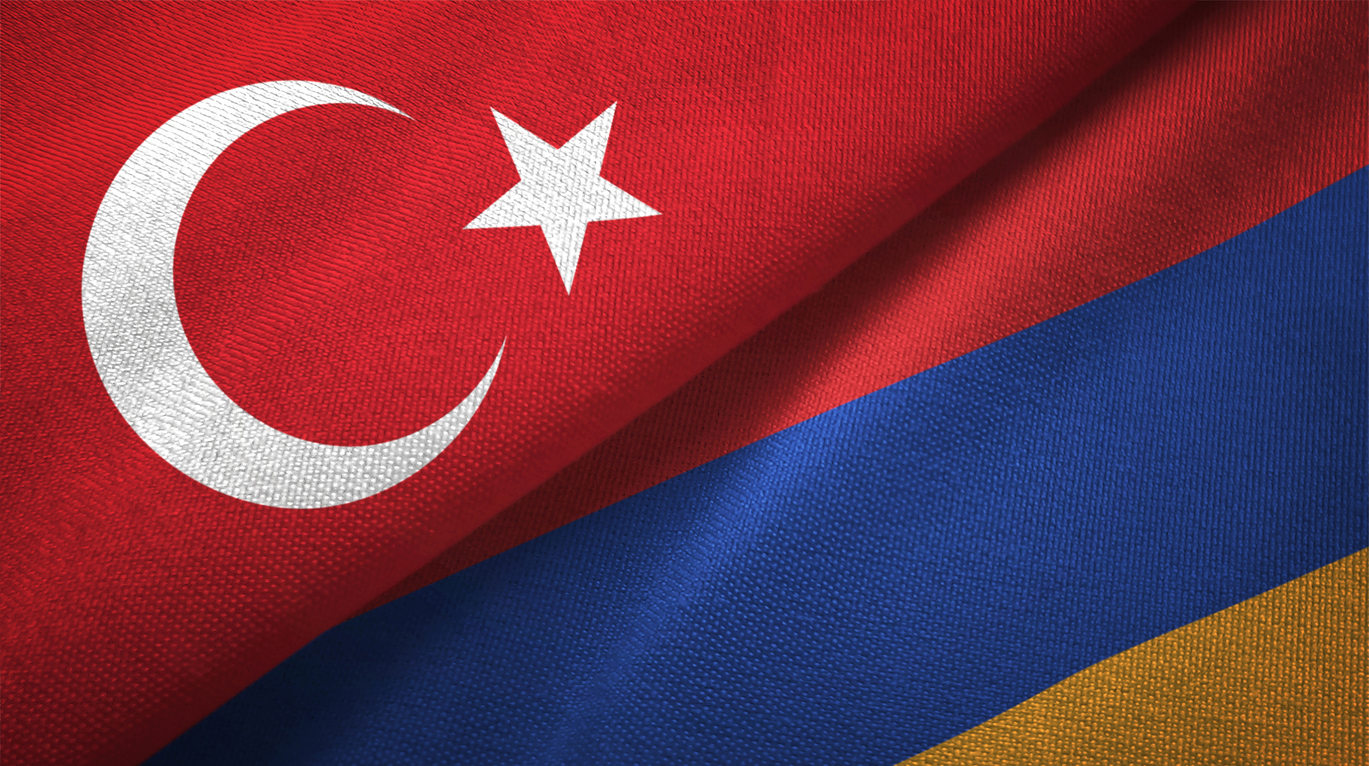
After the 2nd Karabakh War, which ended two years ago, in November 2020, with Azerbaijan regaining most of its Armenian-occupied territories, diplomatic traffic in the South Caucasus has been more active than ever. One of the most notable developments in the aftermath of the Azerbaijan-Armenia war is the promising steps taken towards the normalization of relations between Türkiye and Armenia. The region is experiencing a period in which the most concrete steps have been taken so far in the improvement of peace, stability and multilateral relations. As promising as the diplomatic initiatives of the two sides towards normalization are, it is possible to say that some actors who are uncomfortable with this change in the region are trying to undermine these initiatives.
The normalization process between Türkiye and Armenia is closely followed by our Center. AVİM has written numerous articles on the subject. Summarizing the developments of the past months, we can say that after 2020, the Türkiye-Armenia normalization process has been the most consistent so far. The launching of flights between İstanbul and Yerevan, the lifting of Armenia's ban on the import of Turkish products, and the start of talks in January 2022[1] are promising.
Although the normalization process has created optimism for Türkiye, it has caused immense reaction in Armenia and the Diaspora[2]. Historian Gerard Jirair Libaridian, who served as an advisor to former Armenian President Levon Ter-Petrosyan, stated that Armenia should see itself as part of the region during and after a panel discussion at the Antalya Diplomacy Forum (ADF) in June 2021. Libaridian underlined the need for steps towards normalization between Türkiye and Armenia. He pointed out that the parties in Armenia's domestic politics did/do not fully understand Armenia's presence in the region and therefore could not contribute sufficiently to efforts towards improving the situation. Libaridian said that Türkiye was ready for the normalization process, but Armenia is prejudiced, adding that propaganda activities against the process continued unabated even before the negotiations started. Historian Libaridian emphasized that the younger generation in Armenia is much more inquisitive than many individuals in the society and is critical of the anti-normalization propaganda in this period[3]. Libaridian noted that the normalization process could have many advantages for the region.
The biggest reaction to the process came from the Armenian Revolutionary Federation (ARF), the organization of the Armenian Diaspora. Armenia, which was defeated in the 2nd Karabakh War in which Azerbaijan regained its occupied territories, considers Türkiye as a reason for its defeat. Therefore, ARF and similar organizations in Armenia perceive the normalization process with Türkiye as a threat. However, it is not only extremist and fanatical Armenian organizations that approach the normalization process with suspicion. Some Western countries hosting the Diaspora have also stepped up their activities to sabotage these initiatives.
Even before the normalization process between the two countries began, an attempt was made to create a Pontus issue out of nothing. Numerous conferences have been and continue to be held on this issue, aiming to accuse Türkiye. It is known that behind these attempts, the Armenian diaspora is also supporting the joint efforts of the Greeks and Greek Cypriots[4].
Similarly, Türkiye has recently been confronted with the so-called “İzmir Fire”, a development in which the facts are being covered up. Allegedly, in September 1922, İzmir was set on fire by the Ottomans to exterminate the Greeks and Armenians. The reality is that the fire was started in the Armenian quarter of İzmir and, contrary to the allegations blaming the Ottoman Empire, the fire was spread by Armenian revolutionary nationalists[5]. Despite the fact that this evidence has been put forward with scientific and historical data, they are being suppressed by the Armenian Diaspora and the Greek film industry with their false declarations and reckless propaganda. The most recent example of this is the recently released film “Smyrna”. The film is a product of black propaganda that has nothing to do with reality and has no historical credibility. This latest example is only one of many attempts to undermine the normalization process.
Speaking of “not being credible”, “distorting historical facts” and “black propaganda”, it would be appropriate to mention that another name antagonistic towards the normalization process is the Turkish academician Taner Akçam, one of the leading actors of Armenian propaganda. He has undertaken an initiative called “Dersim 1937-1938 Tertele Oral History Project”[6]. It is stated that more than 350 interviews were conducted in the project. Apart from its subject matter, the nature of this initiative is remarkable. This bundle of interviews is intended to be used as a basis for the claim that a genocide was committed in 1937-1938. When these interviews are evaluated by impartial historians who proceed in light of science, they will find many fabrications and lies. Similar verbal “interviews” have been the most frequently used method of planting Armenian allegations in the minds of Armenians. We are witnessing a similar attempt once again. This attempt is an oral interview, which is a type of source that is suspicious from the beginning to the end and is not possible to verify.
Considering the attempts to undermine the normalization process, it is unfortunately not possible to say that the Armenian government has remained outside of these attempts. Armenia’s diplomatic traffic with the Greek Cypriot Administration of Southern Cyprus (GASC) and Greece has increased especially in the recent period. In June 2022, the Greek Deputy Minister of Defense visited Armenia. Also in June, a Memorandum of Trilateral Cooperation was signed in Athens between Armenia, Greece and the GASC on diaspora issues. On 27 June, Armenian Foreign Minister Ararat Mirzoyan visited Greece for a two-day working visit. He was received by Prime Minister Kyriakos Mitsotakis. During the visit, the Greek-Armenian brotherhood was underlined and the future of, not only bilateral, but also trilateral relations was highlighted. They also stressed the importance of signing a multilateral agreement to create a Gulf-Black Sea international transport transit corridor and exchanged views on Armenia-EU partnership and Armenia-Eastern Partnership. At the end of the talks, a memorandum of cooperation was signed between the Foreign Ministries of the two countries. The foreign ministers of the trilateral front also met in New York on 19 September on the occasion of the 77th session of the UN General Assembly. On 27 September, the Greek Foreign Minister paid an official visit to Armenia. This was the second visit of the Greek Minister since October 2020. During his visit, he also met with the Prime Minister and the Minister of Defense. In his speeches, the Greek minister targeted Azerbaijan and Türkiye, stating that “Türkiye is trying to take advantage of the recent turmoil by disrupting peace and stability, whether in the Caucasus or in the Aegean”. The Prime Ministers of Armenia and Greece met on 7 October in Prague on the sidelines of the European Political Community summit and re-emphasized the trilateral front cooperation[7].
Another example of attempts to undermine the process is a New York Times article written by Constant Méheut on 28 November 2022[8]. The article highlights a scandalous aspect of the Musée de l’Homme, the Museum of Mankind, in Paris. The contents of the museum are no secret. The museum clearly displays a summary of France’s colonialism throughout history. However, the New York Times article in question highlights much more than what is known. According to the article, underneath the museum, the part that is not on display, there are 18,000 skulls, including the remains of African tribal chiefs, Cambodian rebels, indigenous people from Oceania. In this context, it was also shared that there are skulls allegedly belonging to five Armenians. However, the information provided by the museum has been met with skepticism by some historians. Historian Klara Boyer-Rossol, who studied the remains from Madagascar, stated that the museum’s identification policy was restrictive and unrealistic[9]. She conveyed that most of the skulls were collected without being documented and that the museum’s careless attitude was an obstacle to academic studies. How they are able to say that 5 skulls belong to Armenians, as they claim, in the face of such carelessness, is a provocative approach in itself. Moreover, what kind of a perverse idea is this that the skulls of the peoples of the geographies they exploit can be exhibited? An example of this happened in Germany in the Namibia case. Namibia demanded the skulls back as compensation. The museum in question emerged as an extension of colonialism and savagery. It is clear from this that it is not only Germany that has committed similar atrocities. France, which has a much longer history of colonialism than Germany, has been involved in a more far-reaching practice.
The skull case is not limited to 18,000. There is also the dimension of attempts to justify the atrocity. A representative of the French Ministry of Culture stated that the authorities are working on a comprehensive law regulating the future return of the remains. As if the horror of finding the skulls there was not enough, the attempts to identify who they belong to are frightening. What is the purpose here? Will identifying the skulls reveal that some races deserve to die more than others? Or is an attempt being made to determine the opposite situation? There is only one known fact. There is only one definition for insisting on working intensively on the issue: racism. It is upsetting to see that France has become a tool for a new provocation by passing a pro-Armenian law.
The Türkiye-Armenia normalization process will undoubtedly bring numerous advantages for both sides. Türkiye has been taking steps towards normalization with Armenia for years, but these steps have not been concluded. After 2020, another opportunity has arisen for both sides. However, the Armenian Diaspora and third parties, as seen in the examples above, who are uncomfortable with the realization of this opportunity, do not stop their attempts to undermine the process.
If both sides can focus on the normalization process in a healthy way without any internal or external interference, there are significant benefits to be gained from the process. For example, if the Türkiye-Armenia trade is revived, Armenia will be able to trade more cheaply without the need to involve Georgia and Iran. Thus, Armenia will experience a certain degree of economic relief. The establishment of peace and security in multilateral relations in the region, and the promising prospects for future cooperation agreements on a wide range of issues, will undoubtedly depend on investing in the normalization process.
As a result, cooperation between Türkiye, Azerbaijan and Armenia could become more concrete. The enhancement and acceleration of diplomatic relations, as well as multiple trade and energy agreements, could lead to the development of the region as a whole. If all these positive prospects are undermined as a result of attempts to block the process, it could have undesirable consequences not only for any individual country, but for the future of all the peoples of the region.
[1] Turgut Kerem Tuncel, “Türkiye-Ermenistan Arasındaki Normalleşme Girişimine Daşnaksutyun’un Tepkisi,” avim.org.tr, AVİM, 6 January 2022, http://avim.org.tr/tr/Yorum/TURKIYE-ERMENISTAN-ARASINDAKINORMALLESME-GIRISIMINE-DASNAKSUTYUN-UN-TEPKISI.
[2] Tuncel, "Türkiye-Ermenistan Arasındaki Normalleşme Girişimine Daşnaksutyun’un Tepkisi."
[3] Hazel Çağan Elbir, “Historian Libaridian: Türkiye Ready, Armenia Not Yet,” academia.edu, AVİM Bulletin, 24 June 2021, https://www.academia.edu/49432696/TARİHÇİ_LİBARİDİAN_TÜRKİYE_HAZIR_ERMENİSTAN_HENÜZ_DEĞİL_Hazel_ÇAĞAN_ELBİR.
[4] Mustafa Serdar Palabıyık, Yıldız Deveci Bozkuş, “Pontus Issue: A General Overview,” International Crimes and History, 2011, Issue: 11/12, https://avim.org.tr/tr/Dergi/Uluslararasi-Suclar-ve-Tarih-International-Crimes-and-History/11/pdf.
[5] Maxime Gauin, “Reassessment of the Izmir Fire,” academia.edu, Armenian Studies, 2018, p. 59. https://www.academia.edu/36876566/Izmir_Yanginin_Yeniden_Değerlendirilmesi.
[6] “Dersim 1937-38 Tertele Oral History Project,” internaitonal.ucla.edu, The Promise Armenian Institute, 23 November 2022, https://www.international.ucla.edu/armenia/article/260185.
[7] Alev Kılıç, “Olaylar ve Yorumlar,” Armenian Studies, Issue: 72, November 2022, https://avim.org.tr/tr/Duyuru/ERMENI-ARASTIRMALARI-DERGISI-72-SAYISI-YAYINLANDI.
[8] Constant Méheut, “A Paris Museum Has 18,000 Skulls. It's Reluctant To Say Whose,” nytimes.com, The New York Times, 28 November 2022, https://www.nytimes.com/2022/11/28/arts/design/france-human-remains-restitution-skulls.html%2018000.
[9] Constant Méheut, “A Paris Museum Has 18,000 Skulls. It's Reluctant To Say Whose.”
© 2009-2025 Center for Eurasian Studies (AVİM) All Rights Reserved
No comments yet.
-
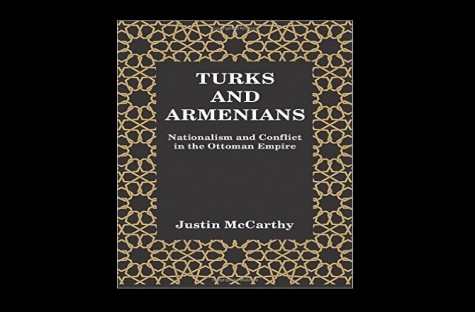 CHAPTER BY CHAPTER SYNOPSIS AND REVIEW OF TURKS AND ARMENIANS: NATIONALISM AND CONFLICT IN THE OTTOMAN EMPIRE BY JUSTIN MCCARTHY - 7
CHAPTER BY CHAPTER SYNOPSIS AND REVIEW OF TURKS AND ARMENIANS: NATIONALISM AND CONFLICT IN THE OTTOMAN EMPIRE BY JUSTIN MCCARTHY - 7
Hazel ÇAĞAN ELBİR 22.10.2015 -
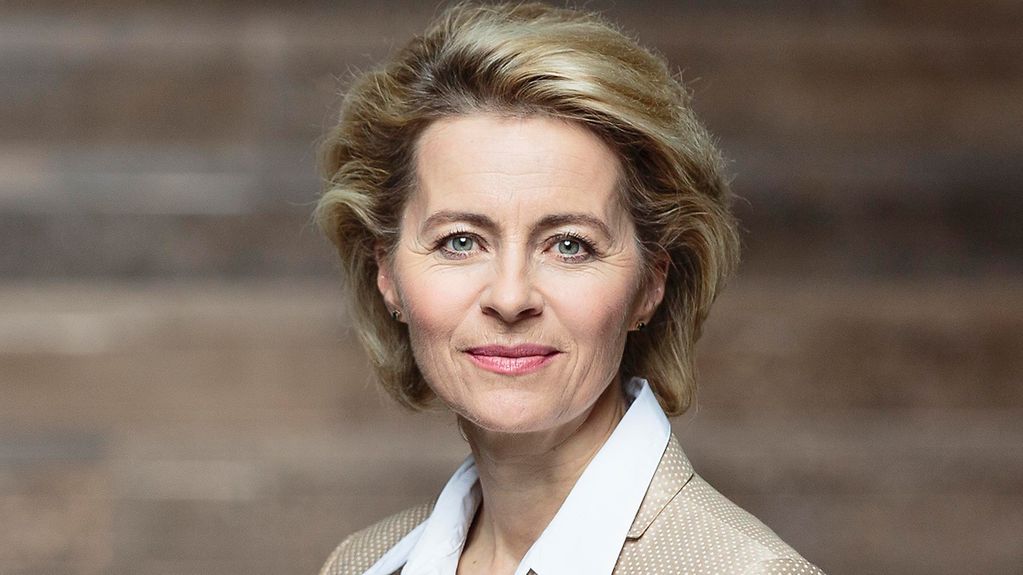 NEW LEADERS FOR THE EUROPEAN UNION HAVE BEEN APPOINTED
NEW LEADERS FOR THE EUROPEAN UNION HAVE BEEN APPOINTED
Hazel ÇAĞAN ELBİR 06.08.2019 -
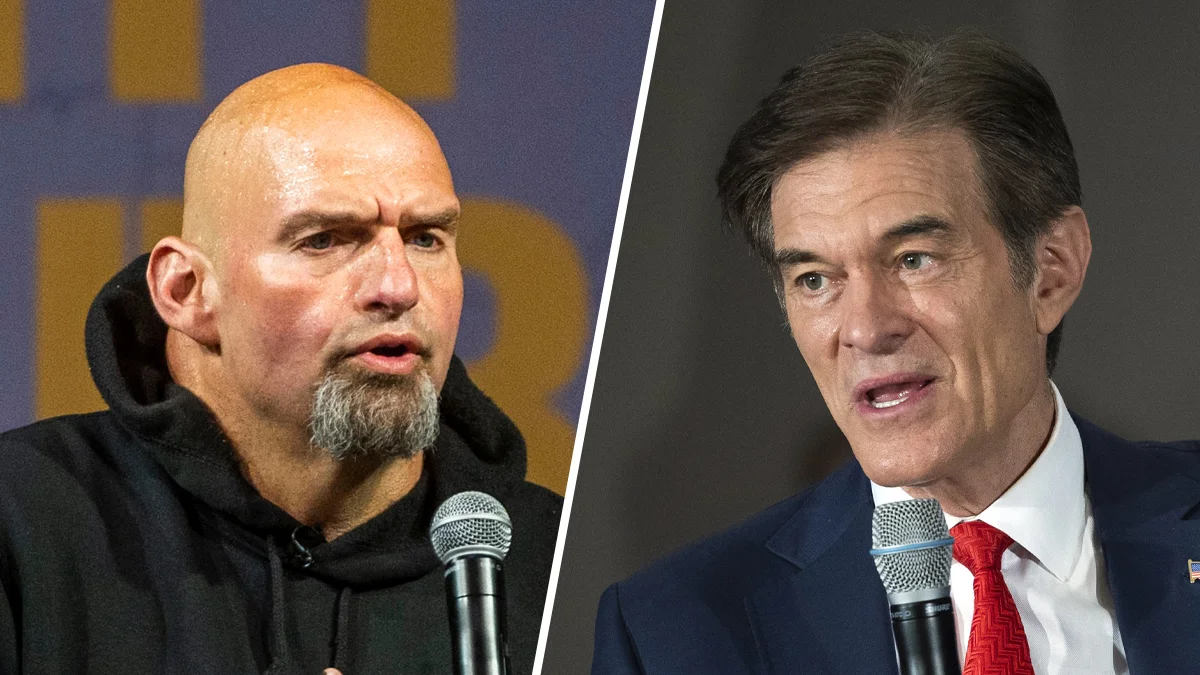 TURKISH-AMERICAN RELATIONS LOST A HISTORICAL OPPORTUNITY
TURKISH-AMERICAN RELATIONS LOST A HISTORICAL OPPORTUNITY
Hazel ÇAĞAN ELBİR 17.11.2022 -
 REFLECTIONS ON THE EU – CENTRAL ASIA SUMMIT
REFLECTIONS ON THE EU – CENTRAL ASIA SUMMIT
Hazel ÇAĞAN ELBİR 14.04.2025 -
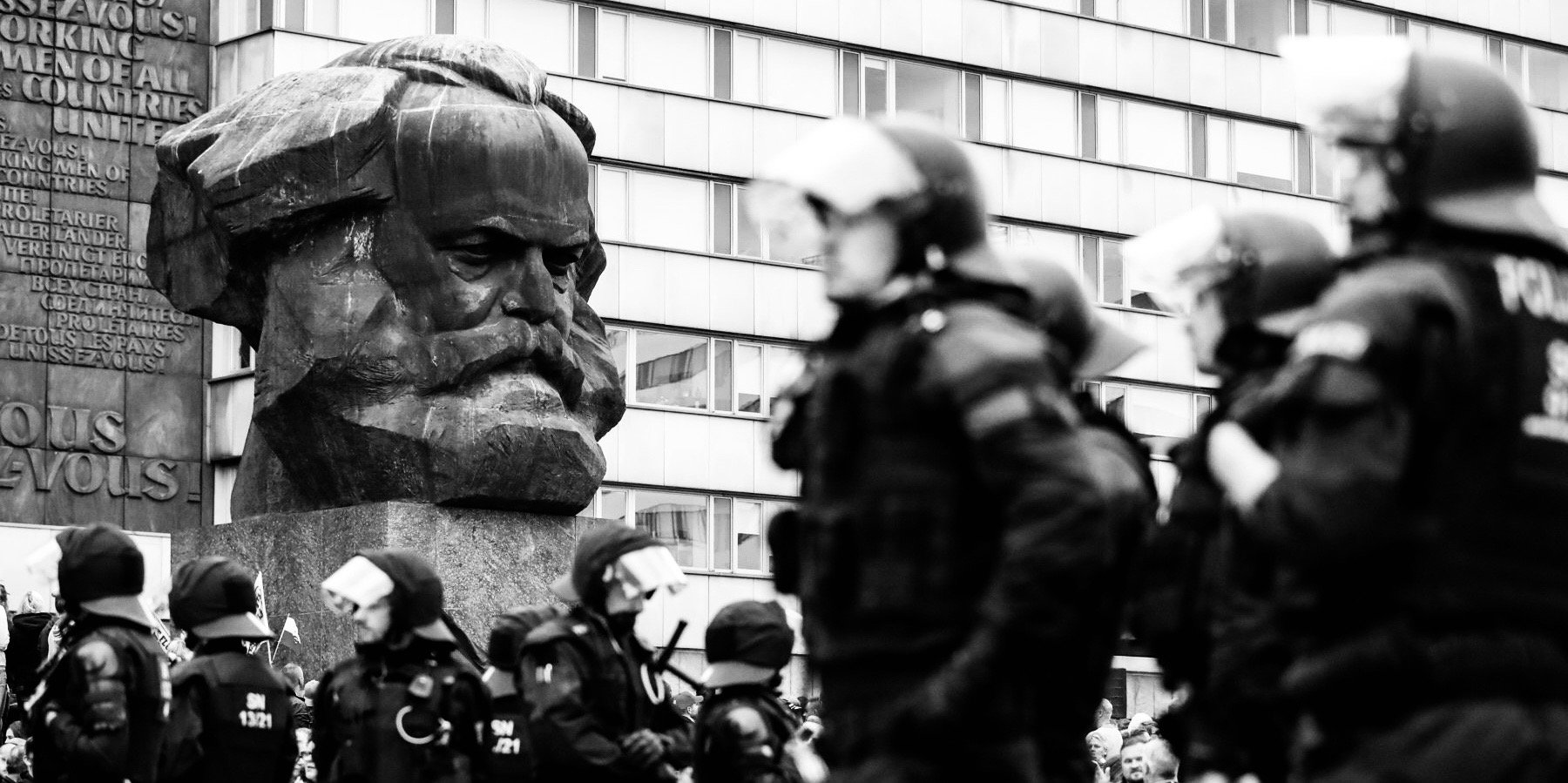 AFD’S SLOGAN: THE MORE REFUGEES, THE MORE VOTES
AFD’S SLOGAN: THE MORE REFUGEES, THE MORE VOTES
Hazel ÇAĞAN ELBİR 09.04.2020
-
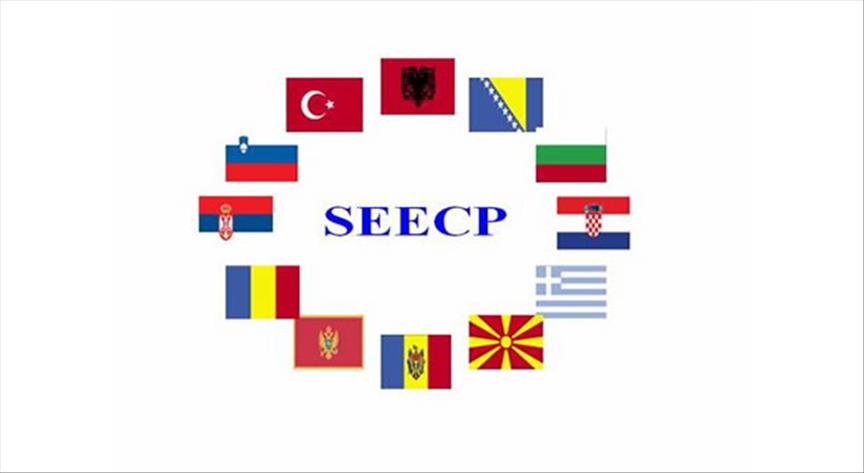 TURKEY HAS ASSUMED THE CHAIRMANSHIP-IN-OFFICE OF THE SOUTH EAST EUROPE COOPERATION PROCESS (SEECP)
TURKEY HAS ASSUMED THE CHAIRMANSHIP-IN-OFFICE OF THE SOUTH EAST EUROPE COOPERATION PROCESS (SEECP)
Teoman Ertuğrul TULUN 17.07.2020 -
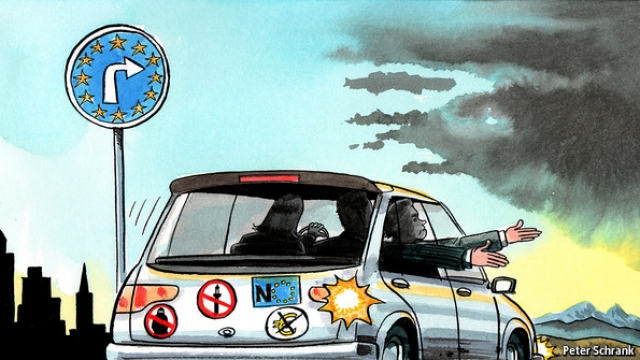 RISING ISLAMOPHOBIA IN THE WESTERN WORLD AND THE TURKISH-ARMENIAN CONTROVERSY
RISING ISLAMOPHOBIA IN THE WESTERN WORLD AND THE TURKISH-ARMENIAN CONTROVERSY
Mehmet Oğuzhan TULUN 15.03.2019 -
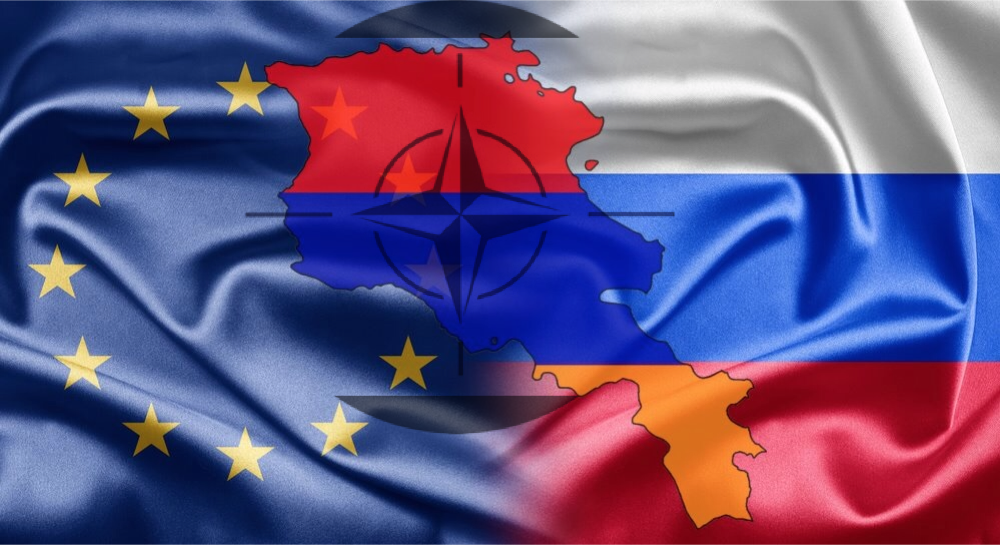 ARMENIA’S SEARCH FOR REAL-POLITIK BETWEEN RUSSIA AND THE WEST
ARMENIA’S SEARCH FOR REAL-POLITIK BETWEEN RUSSIA AND THE WEST
Tutku DİLAVER 16.08.2018 -
 GUARDIANSHIP IN PRACTICE: LEADERSHIP, ADAPTATION, AND SECURITY CHALLENGES IN THE BLACK SEA
GUARDIANSHIP IN PRACTICE: LEADERSHIP, ADAPTATION, AND SECURITY CHALLENGES IN THE BLACK SEA
Teoman Ertuğrul TULUN 16.10.2025 -
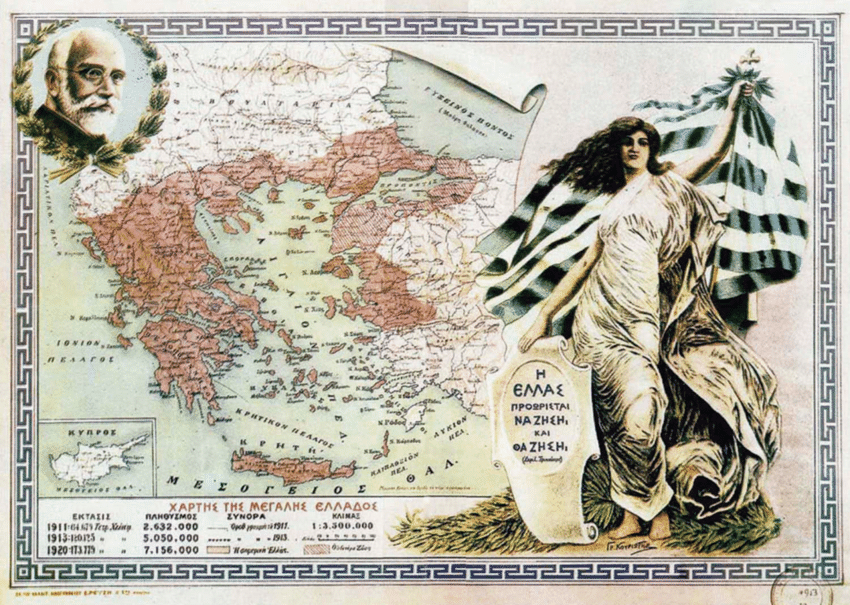 CONSEQUENCES OF MATERIAL BREACH OF THE LAUSANNE PEACE TREATY
CONSEQUENCES OF MATERIAL BREACH OF THE LAUSANNE PEACE TREATY
Teoman Ertuğrul TULUN 07.10.2020
-
25.01.2016
THE ARMENIAN QUESTION - BASIC KNOWLEDGE AND DOCUMENTATION -
12.06.2024
THE TRUTH WILL OUT -
27.03.2023
RADİKAL ERMENİ UNSURLARCA GERÇEKLEŞTİRİLEN MEZALİMLER VE VANDALİZM -
17.03.2023
PATRIOTISM PERVERTED -
23.02.2023
MEN ARE LIKE THAT -
03.02.2023
BAKÜ-TİFLİS-CEYHAN BORU HATTININ YAŞANAN TARİHİ -
16.12.2022
INTERNATIONAL SCHOLARS ON THE EVENTS OF 1915 -
07.12.2022
FAKE PHOTOS AND THE ARMENIAN PROPAGANDA -
07.12.2022
ERMENİ PROPAGANDASI VE SAHTE RESİMLER -
01.01.2022
A Letter From Japan - Strategically Mum: The Silence of the Armenians -
01.01.2022
Japonya'dan Bir Mektup - Stratejik Suskunluk: Ermenilerin Sessizliği -
03.06.2020
Anastas Mikoyan: Confessions of an Armenian Bolshevik -
08.04.2020
Sovyet Sonrası Ukrayna’da Devlet, Toplum ve Siyaset - Değişen Dinamikler, Dönüşen Kimlikler -
12.06.2018
Ermeni Sorunuyla İlgili İngiliz Belgeleri (1912-1923) - British Documents on Armenian Question (1912-1923) -
02.12.2016
Turkish-Russian Academics: A Historical Study on the Caucasus -
01.07.2016
Gürcistan'daki Müslüman Topluluklar: Azınlık Hakları, Kimlik, Siyaset -
10.03.2016
Armenian Diaspora: Diaspora, State and the Imagination of the Republic of Armenia -
24.01.2016
ERMENİ SORUNU - TEMEL BİLGİ VE BELGELER (2. BASKI)
-
AVİM Conference Hall 24.01.2023
CONFERENCE TITLED “HUNGARY’S PERSPECTIVES ON THE TURKIC WORLD"









